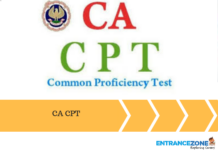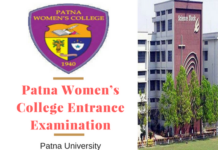Archaeology Courses: Archaeology is the study of human culture by analyzing the objects made by humans. Archaeologists are the sub-field of Anthropology. It is one of the best courses candidates can choose for a bright future in their career. It involves the study of artefacts, architecture, bio-facts and cultural landscapes. Through this course, candidates can work in historical sites, indulge in the restoration of monuments and explore the ancient history of India. Candidates may read the whole article for details regarding the Archaeology courses.
What is Archaeology?
Contains
The archaeologist is the study of human history through millions of years with the help of historical sites, the structure remains bones, tools and other artefacts. The experts in this field are known as Archaeologists.
There are four types of Archaeology i.e:
- Prehistoric Archaeology: Prehistoric Archaeology is the study of past cultures that don’t have any written language.
- Historical Archaeology: Historical Archaeology is the study of cultures or civilizations that excited during the period of recorded history.
- Underwater Archaeology: Underwater Archaeology is the study of human remains beneath the surface of the oceans.
- Urban Archaeology: Urban Archaeologists is a branch of Archaeology specializing in large towns and cities with long strati-graphic histories of work.
Who are Archaeologists?
Archaeologists or people who are experts in Archaeology are the scientists who study the remains of people and past civilizations. They study human history from the leftovers such as homes, clothes, bones dishes etc. Candidates who want to be archaeologists must have a deep knowledge of history and geography. The responsibility of archaeologists is to do the surveys with different methods and instruments, manipulate the data using the drawing, notes and photography.
Scope of Archaeology Courses
Archaeology courses have huge scope in India because of its rich heritage culture. Candidates after qualifying this course can work in private as well as government sectors. Also, candidates can become a lecturer in various universities by doing Post Graduation in Archaeology. Archaeologists can also work at the private as well as government museums for the safe upkeep and management of ancient artefacts.
How to Become an Archaeologist?
| Stream | Graduation | After Graduation | After Post Graduation | |
|---|---|---|---|---|
|
Path 1 |
Clear Class XII with any stream | Pursue B.A. / B.Sc. in any field or Archaeology for 3 years | Pursue M.A Archaeology/ Ancient Indian History and Archaeology/ Museology/ Conservation, Preservation and Heritage Management for 2 years | M.Phil in History/ Archaeology for 2 years or/and PhD for 3-4 years |
|
Path 2 |
Clear Class XII with any stream | Pursue B.A. / B.Sc. in any field or Archaeology for 3 years | Pursue Post-Graduate Diploma in Archaeology and Museology for 1-2 years | – |
What is the Eligibility Criteria for Archaeology Courses?
The details regarding the eligibility criteria of the courses are given below:
| Courses | Eligibility |
| Bachelors courses | Candidates must have passed class 12 form a recognised board with any stream. |
| Master courses | Candidates must have a bachelor’s degree in a related field like Archaeology, Indian history culture, anthropology. |
| Postgraduate diploma courses | Candidates just have a masters degree in ancient/ medieval/ Indian history or Archaeology. |
Archaeology Courses
The list of courses is given below:
| Courses | Branches |
| Undergraduate courses |
|
| Master Courses |
|
What is the Admission Procedure for Archaeology Courses?
The details regarding the admission procedure for Archaeology courses are given below:
- Firstly, candidates must be eligible for admission for the Archaeology courses.
- The different universities/institutes will conduct their entrance examinations.
- Candidates will be called for counselling and seat allotment depending on the procedure of a particular college.
- Also, candidates marks in their class 12 will be considered as well for admission in bachelors courses.
Colleges offering Archaeology
The top college which offers the Archaeology courses are given below:
- Institute of Archaeology, New Delhi
- National Museum Institute, New Delhi
- Delhi Institute of Heritage Research and Management, New Delhi
- MSG University, Baroda
- University of Madras, Chennai
- Tamil University, Thanjavur
Skills Required to Become an Archaeologist
The skills that are required are given below:
- Enthusiasm and zeal to know about the developments in Archaeology.
- A well-organised approach and in-depth attention to detail.
- Must have strong team-building skill.
- Must be self-motivated and focused.
- Good in analytical and problem-solving.
- Must have a good knowledge of various tools and instruments.
- Must have good communication skills.
Career and Jobs
Candidates can have a great career in Archaeology in India. Candidates can do jobs in government as well as private sectors. Candidates can work as a tourist guide, heritage managers, interpreters, resource person of trip organizers in tourism.
The top jobs in the field of Archaeology are given below:
- Archaeologist
- Historic buildings
- Museum/ Gallery Curator
- Heritage manager
- Lecturer
- Documentation specialist
- Museum education officer
The top recruiters in this field of Archaeology are:
- Archaeological surveys of India
- National heritage Agencies
- Indian council of history research
- Government and private museums and cultural galleries
- Universities and colleges










